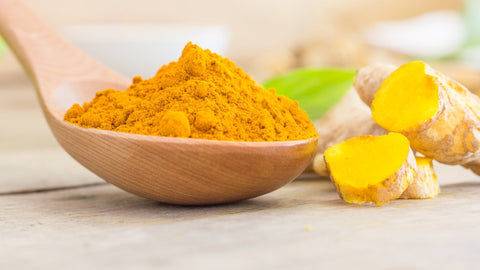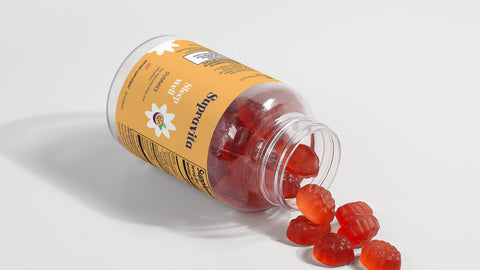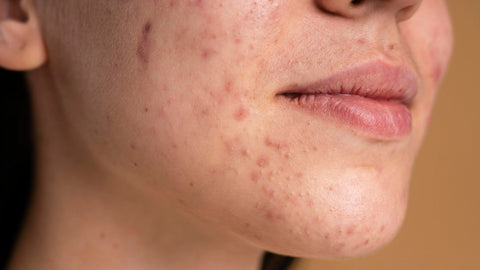Turmeric, a vibrant yellow powder known scientifically as Curcuma longa, celebrated for its culinary and health benefits, has gained popularity in recent years.
As we embrace its uses, many wonder about its impact on dental health. Does turmeric stain your teeth, and what are the best practices for oral hygiene?
This article explores the origins and benefits of turmeric, including its role in traditional medicine, as well as its potential downsides, like how it can affect your smile.
From stain prevention tips to natural remedies for removal, such as turmeric gel and turmeric toothpaste, find everything you need to know about turmeric and your teeth!
What Is Turmeric?
Turmeric, scientifically known as Curcuma longa, is a bright yellow powder that has been used for centuries in traditional medicine, particularly in Southeast Asia and India. This vibrant spice is derived from the rhizomes of the Curcuma longa plant and is renowned for its numerous health benefits, including its anti-inflammatory and antimicrobial properties, making it a staple in both cooking and natural dental care. It is often a staple in cooking and holds a significant place in various cultures, especially for its role in promoting oral health and preventing diseases such as gingivitis and periodontal disease.
What Are the Uses of Turmeric?
Turmeric is not only a popular spice in cooking, particularly in turmeric recipes, but it also boasts a myriad of uses ranging from culinary applications to health remedies, owing to its remarkable turmeric benefits, especially for oral health. Regular turmeric consumption can enhance oral hygiene, help in plaque reduction, and combat inflammation, contributing to overall oral health, particularly in the prevention of gingivitis and periodontal disease. Additionally, turmeric is integrated into various traditional medicine practices and studies, often as a natural remedy for infections and inflammation.
What Are the Benefits of Consuming Turmeric?
Consuming turmeric offers a plethora of benefits, primarily due to its active compound, curcumin, which is known for its strong anti-inflammatory and antimicrobial properties. Regular intake of turmeric can significantly enhance oral health, aiding in the prevention of conditions such as gingivitis and periodontal disease, while also promoting general well-being by combating inflammation throughout the body.
Recent research highlights that curcumin specifically targets inflammation and pathogens, which can help safeguard the mouth from harmful bacteria. According to a study published in the Journal of Clinical & Diagnostic Research, participants who incorporated turmeric into their diets exhibited reduced inflammation levels and improved oral conditions.
- Support for oral health: Curcumin's antimicrobial effects significantly lower the risk of plaque buildup.
- Anti-inflammatory properties: Regular turmeric consumption may help reduce symptoms associated with gum diseases.
- Overall health benefits: Beyond oral care, its systemic anti-inflammatory properties promote better health, reducing the risk of chronic diseases.
With these findings in mind, including turmeric in daily routines may prove to be a simple yet effective method for enhancing both oral and overall health.
What Are the Ways to Use Turmeric?
There are numerous ways to incorporate turmeric into your daily routine, from culinary recipes to oral care products like turmeric mouthwash and turmeric toothpaste. Turmeric applications extend beyond cooking, as individuals can also use turmeric gel for skin health or create homemade turmeric remedies to leverage its powerful benefits for oral hygiene and overall health.In the kitchen, adding turmeric to your meals is both easy and versatile. You can sprinkle it on rice, mix it into soups, or blend it into smoothies for an inviting, golden color and a unique flavor. Consider trying simple recipes like:
- Turmeric Golden Milk: Combine turmeric, ginger, coconut milk, and sweetener of choice for a soothing drink.
- Turmeric Rice: Add a teaspoon of turmeric to your boiling rice for a bright, flavorful side dish.
- Turmeric Face Mask: Mix turmeric with honey and yogurt for a natural remedy to achieve glowing skin.
Using turmeric in toothpaste or mouthwash enhances oral health, combating bacteria and bad breath while promoting gum health, which seamlessly integrates its myriad benefits into your routine.
Does Turmeric Stain Your Teeth?
While turmeric is celebrated for its health benefits, it also raises concerns regarding its potential to stain teeth, leading many to wonder, does turmeric stain your teeth? The yellow pigment in turmeric can lead to noticeable discoloration, especially if used excessively in oral care routines or cooking without proper dental hygiene practices. However, with the right methods, these stains can often be minimized or prevented.
What Causes Turmeric to Stain Teeth?
The staining of teeth by turmeric is primarily attributed to the compound known as curcumin, which possesses strong pigments that can cling to tooth enamel. When turmeric interacts with bacteria and plaque in the mouth, this can create a noticeable yellow stain, especially if oral hygiene practices are insufficient. Understanding this interaction can help individuals manage potential discoloration effectively.
Curcumin, a powerful antioxidant, not only provides its vibrant hue but also binds readily to dental surfaces. This phenomenon can result in a deepening of existing stains particularly in regions where plaque accumulates. The effect becomes exacerbated in individuals who consume turmeric regularly without practicing adequate oral care.
- Proper brushing techniques.
- Regular flossing.
- Routine dental check-ups.
These practices help combat the bacteria that contribute to plaque formation, effectively minimizing the potential for yellow discoloration caused by turmeric while enhancing overall dental care. Ultimately, maintaining a rigorous oral hygiene regimen is paramount for anyone keen on preventing staining while still enjoying the health benefits of turmeric.
How Can You Prevent Turmeric Stains on Teeth?
Preventing turmeric stains on teeth can be achieved through diligent oral hygiene practices and choosing the right dental products, such as fluoride toothpaste or anti-plaque formulations.
Incorporating a consistent dental routine plays a vital role in ensuring that turmeric's staining potential is minimized. Here are a few practical tips:
- Brush Twice Daily: Use a soft-bristled toothbrush to gently scrub away any residue from turmeric and other foods.
- Floss Daily: Flossing effectively removes build-up between the teeth where stains often settle.
- Use Whitening Toothpaste: Consider whitening formulations as they can assist in preventing and reducing discoloration.
- Rinse with Water: Rinsing your mouth with water immediately after consuming turmeric can help reduce its contact with your teeth.
- Frequency of Dental Visits: Schedule check-ups every six months to professionally clean and assess your dental health.
By maintaining this routine, you not only fight stains but also fortify your overall oral health.
Are There Any Alternatives to Consuming Turmeric for Its Benefits?
For those concerned about the staining potential of turmeric, alternatives such as turmeric extract and curcumin supplements can provide similar health benefits without the risk of dental discoloration, making them favorable options in modern herbal remedies. These alternatives retain the remarkable properties of turmeric, including anti-inflammatory and antimicrobial effects, making them effective options for individuals seeking to enhance their oral health and overall well-being, particularly against conditions like gingivitis and periodontal disease.
Many individuals are now exploring these options to incorporate natural anti-inflammatory agents into their diets without the worry of unwanted side effects, particularly staining. Here are some alternatives worth considering:
- Turmeric Extract: This concentrated form retains the potency of turmeric without the color, making it an appealing choice for those looking to enjoy its benefits for inflammation and pain relief.
- Curcumin Supplements: Specifically containing curcumin, the active compound in turmeric, these supplements are a great way to enhance oral health and boost immune response without the worry of staining.
- Ginger: Another powerhouse with anti-inflammatory properties, ginger can also be used in various forms, such as teas or supplements, to support overall wellness.
Incorporating these alternatives into a routine can significantly impact well-being, offering a vibrant path to health without the drawbacks commonly associated with turmeric.
What Are the Other Side Effects of Turmeric?
While turmeric is widely praised for its health benefits, particularly for its role in oral care, it is also important to be aware of potential side effects associated with its consumption, such as allergic reactions and stomach upset. Understanding these side effects allows individuals to make informed decisions about turmeric intake and its overall impact on health.
Can Turmeric Cause Allergic Reactions?
Turmeric can cause allergic reactions in some individuals, leading to symptoms such as skin rashes, gastrointestinal distress, or even respiratory issues in extreme cases.
While generally considered safe and widely used in traditional medicine, it’s essential for individuals to be aware of their sensitivities when incorporating turmeric into their diets.
Individuals who regularly consume turmeric, whether through cooking or in health supplements, should be particularly vigilant. Allergic reactions can manifest in various ways, making it crucial to identify them early.
Here are some common symptoms to watch out for:
- Skin Rash: This may present as hives, redness, or itching.
- Gastrointestinal Distress: Symptoms can include nausea, vomiting, and abdominal pain.
- Respiratory Issues: Some might experience difficulty breathing, wheezing, or nasal congestion.
Recognizing these signs helps mitigate serious health risks and ensures safe consumption. It's advisable for individuals to consult healthcare providers if they suspect an allergy, as well-researched information can lead to better management of their dietary choices.
Knowledge of personal allergies, especially concerning turmeric, can enhance both safety and overall well-being.
Can Turmeric Interact with Medications?
Turmeric, specifically its active compound curcumin, has been known to interact with certain medications, potentially affecting their efficacy and absorption.
Individuals who are on medication should consult healthcare professionals to ensure that the consumption of turmeric does not lead to adverse interactions. This golden spice, celebrated for its anti-inflammatory and antioxidant properties, might influence how medications such as blood thinners, certain antihistamines, and antidiabetic drugs are metabolized in the body.
Specifically, curcumin interacts with hepatic enzymes, which can modify medication levels and impact their effectiveness. Thus, it's advisable for anyone consuming medications like warfarin or metformin to be mindful and discuss their turmeric intake with a physician.
For instance, when considering herbal supplements, understanding how they might affect your regimen is crucial.
- Consult healthcare providers for tailored guidance.
- Be aware of potential changes in drug absorption.
- Monitor for side effects or reduced efficacy.
Can Turmeric Cause Stomach Upset?
Some individuals may experience stomach upset or digestive issues due to the consumption of turmeric, particularly in large quantities. While turmeric is generally regarded as safe and beneficial, excessive intake or sensitivity can lead to gastrointestinal discomfort.
When consuming turmeric, one must consider various factors, including the dosage and individual tolerance levels, which can significantly influence its effects on the digestive system. For instance, taking turmeric in high doses or in forms such as supplements may increase the likelihood of experiencing side effects. A better approach is to incorporate turmeric into meals, keeping the amount to a moderate level.
- Start with small quantities.
- Observe how your body reacts.
- Gradually increase the dosage if there are no adverse effects.
In addition, some individuals may have specific digestive sensitivities or allergies that can exacerbate symptoms. Therefore, it is advisable to consult healthcare professionals to tailor a consumption plan that accommodates personal health conditions.
How to Remove Turmeric Stains from Teeth?
Removing turmeric stains from teeth can be challenging, but there are effective methods and natural remedies available that can help restore your smile. Many dental professionals recommend a combination of regular oral hygiene practices and specific whitening techniques to tackle turmeric discoloration effectively.
What Are Some Natural Remedies for Removing Turmeric Stains?
Natural remedies for removing turmeric stains from teeth include common household items like baking soda, coconut oil, and hydrogen peroxide, which can effectively lighten discoloration. By incorporating these natural solutions into your oral hygiene routine, you can maintain a brighter smile without resorting to harsh chemicals.
These simple yet effective remedies not only help in tackling stubborn stains but also promote overall dental health. For example, baking soda acts as a gentle abrasive that can scrub away surface discolorations when mixed with water to create a paste. Regular use of this mixture can significantly brighten your smile.
- Coconut oil is well-known for oil pulling, a practice that can reduce plaque buildup and freshen breath. Swishing a tablespoon in your mouth for about 15-20 minutes may also help in dissolving stains.
- Hydrogen peroxide serves as a natural bleaching agent; diluting it with equal parts water before applying it to your teeth can help lift some of those pesky turmeric marks.
It’s crucial to practice these remedies with care and incorporate them alongside regular dental check-ups for long-lasting results.
Are There Any Professional Teeth Whitening Options for Turmeric Stains?
For those struggling with turmeric stains, professional teeth whitening options are available and can provide effective results. Dental professionals often use advanced treatments designed to safely remove stubborn stains while promoting overall oral health.
These treatments include a variety of choices tailored to meet individual needs. In-office whitening sessions typically utilize high-concentration whitening gels activated by specialized lights, allowing for dramatic changes in just one visit.
- At-home kits offered by dentists often feature custom-fitted trays that ensure even application of the whitening gel, providing convenience and effectiveness.
- Over-the-counter options also exist, but consulting with dental professionals is recommended to ensure the most effective methods are used against persistent turmeric stains.
Many patients have reported significant improvements in their smile after undergoing these professional treatments, which not only enhance aesthetics but also contribute to enhanced confidence.
Frequently Asked Questions
Does turmeric stain your teeth?
Yes, turmeric can stain your teeth due to its vibrant yellow color.
How does turmeric stain your teeth?
Turmeric contains a compound called curcumin, which is known for its bright yellow color and can easily stain porous surfaces like teeth.
What foods with turmeric can stain your teeth?
Foods with turmeric, such as curries, mustards, and turmeric supplements, can potentially stain your teeth.
Can brushing your teeth remove turmeric stains?
Yes, brushing your teeth with a whitening toothpaste can help remove minor turmeric stains. However, deeper stains may require professional dental cleaning.
How can you prevent turmeric stains on your teeth?
To prevent turmeric stains on your teeth, you can try drinking turmeric-based beverages through a straw, rinsing your mouth with water after consuming turmeric, or brushing your teeth immediately after eating turmeric-rich foods.
Are there any benefits of turmeric for oral health?
Yes, turmeric has anti-inflammatory and antimicrobial properties that can help improve gum health. However, it is important to consume turmeric in moderation to prevent staining of teeth.






